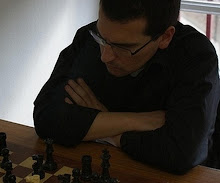 RUSSIA`S PRE-OLIMPIC NIGHMARE ( Opinion Article By Garry Kasparov )
RUSSIA`S PRE-OLIMPIC NIGHMARE ( Opinion Article By Garry Kasparov )April 26, 2008
Moscow
"The international community is justly concerned about China's crackdown in Tibet in the run-up to the 2008 Olympic Games in Beijing.
But perhaps some attention could be spared for the suffering of Russians ahead of the 2014 Winter Olympics, scheduled to take place in the Russian town of Sochi.
An International Olympic Committee official visited Sochi last week and remarked: "Here you start from nothing." Jean-Claude Killy went on to say that the complete lack of infrastructure only meant it was "an incredible chance" to build a resort.
The original estimate for the Sochi Games was $12 billion, more than was spent on the last three Winter Olympics combined.
Now the organizers are saying $20 billion, and it's only 2008. This is only the beginning of yet another massive shift of Russian assets from public to private hands – this time under the cover of the Olympic rings.
Three weeks ago, I and other Russian opposition members held a press conference with residents of Sochi.
We read aloud from a new law pertaining to the Olympic site. It gives the state the ability to confiscate as much land as it wants in the area, with no possible appeal. With one decision, people will lose their homes and businesses and will have no avenue of protest.
The government announced that it will soon begin to appropriate land, and that the current owners will get a "fair-market price," which of course will be set by the government.
During the IOC's visit, a group of local protesters tried to unfurl an "SOS" banner and were physically attacked by the police.
President George W. Bush recently visited Vladimir Putin in Sochi and did not object to the Kremlin's assault on private ownership. Perhaps this is the same "quiet diplomacy" advocated by U.S. National Security Adviser Stephen Hadley a few weeks ago, when he was asked about the Chinese crackdown in Tibet.
In other words, we are not going to hear this U.S. president say "I am a Tibetan" any time soon.
I have had a painfully close-up view of over seven years of Western quiet diplomacy toward Russia. "Quiet diplomacy" can be roughly translated as, "we'll cut a deal no matter what."
During this period we have moved from a frail new democracy to a KGB dictatorship. Based on such results, it is long past time to try something noisier.
Despite their bluster over missile defense, Kosovo and the North Atlantic Treaty Organization, there are only two things that Mr.Putin and his gang really care about: total control inside of Russia and legitimacy outside of Russia.
Legitimacy in Western eyes is clearly important to Mr.Putin.
Otherwise, why not simply change the constitution, or ignore it entirely, and remain as president for a third term ?
Why did he even bother with the rigged elections?
The answer: the hundreds of billions of dollars flowing out of Russia in the hands of Mr. Putin's oligarchs need a safe home.
London's capital markets, Swiss banks, real estate, energy companies across Europe – this is where much of the Russian treasury has been going for the past eight years. In order to maintain such a cozy arrangement of mutual enrichment with the West, Russia must maintain a democratic façade.
I used to compare our vanishing democracy to that of countries like Venezuela and Zimbabwe.
But events have shown how wrong I was to make such comparisons – and how unfair I was being to Hugo Chávez and Robert Mugabe.
Venezuela's Mr. Chávez, little more than an oil-empowered hooligan, actually lost a recent referendum on expanding his powers by 2%.
Vladimir Churov of the Russian Central Election Committee would never have stood for such an embarrassment!
Even Mr. Mugabe, Zimbabwe's old-fashioned despot, is too shy to publish victorious results in the latest elections.
Perhaps Mr. Churov can be rented out to other would-be dictators who wish to maintain pleasant relations with the champions of democracy in America and the European Union.
After Mr. Putin's handpicked successor, Dmitry Medvedev, "won" the Russian presidency last March, the leaders of the free world lined up to congratulate him on, as German chancellor Angela Merkel put it, "a smooth transition of power." Were phone calls made to celebrate a similar transition in Cuba, when Fidel Castro handed the reins to his brother ?
Legitimizing their capital in the West is the Kremlin's top priority, and those congratulatory phone calls to Mr. Medvedev were worth countless billions of dollars. The last hurdle, transition of power, has been surmounted with barely a word of protest from the leaders of the G-7 nations.
The return of Silvio Berlusconi, a self-declared European "advocate" for Mr. Putin and his gang, can only make things worse.
It doesn't take a whole lot of courage to criticize the rule of Fidel Castro or Kim Jong Il.
British Prime Minister Gordon Brown sounded quite tough criticizing Zimbabwe's elections.
But when it comes to nations like Russia and China, issues of basic human rights suddenly become "complicated."
I am all for refusing to bless the Chinese show.
But at the same time, it's not fair to suddenly drag the world's greatest athletes into a battle that politicians should have had the courage to fight.
Will Russians have to wait until 2014 to see support for our own struggle for human rights ?
Mr. Kasparov, leader of The Other Russia coalition,
is a contributing editor of The Wall Street Journal."
 >
>



































